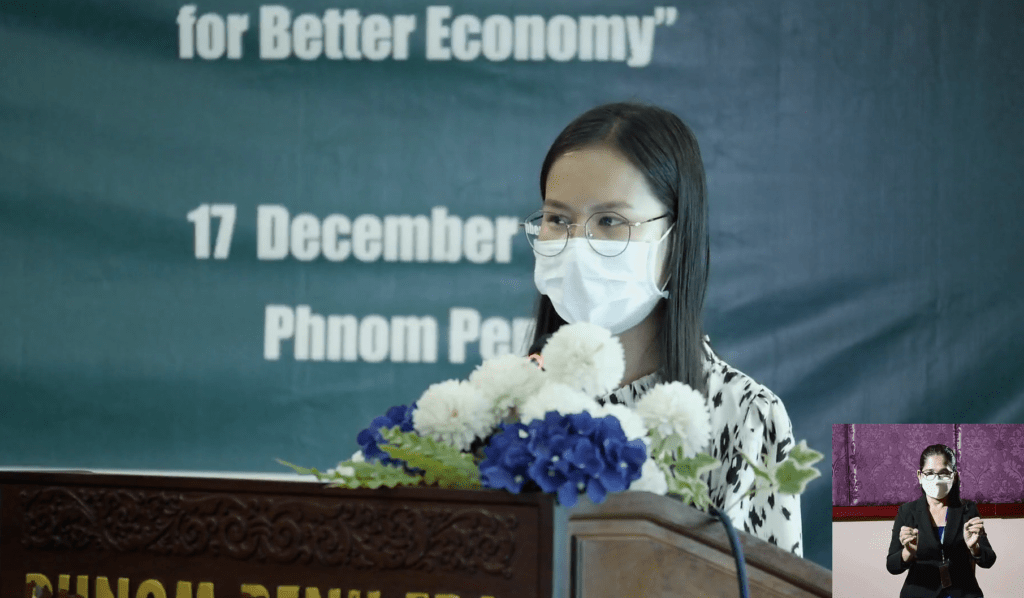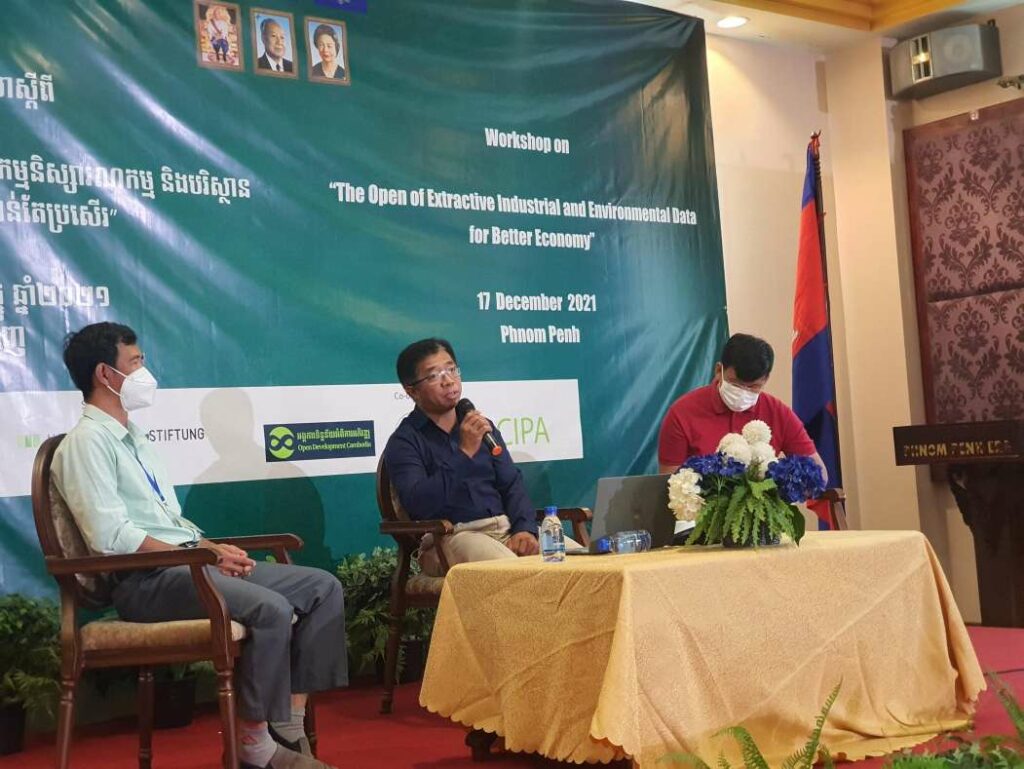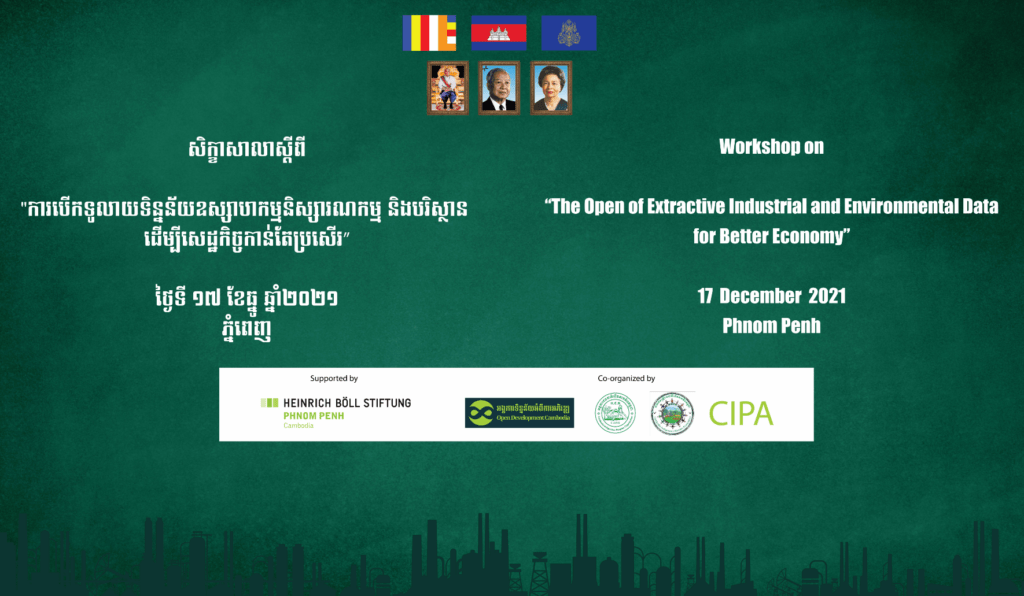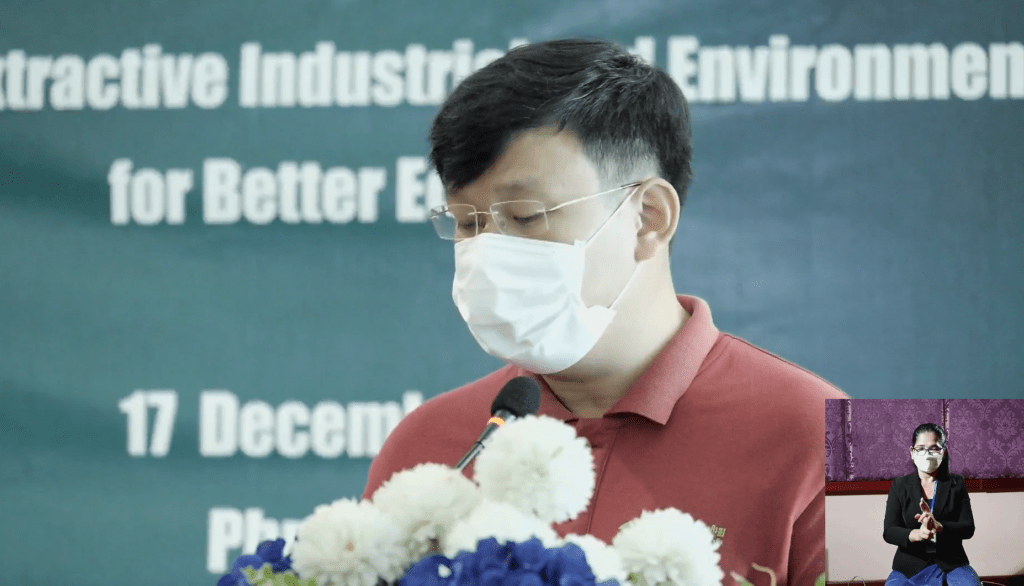The hybrid workshop on the open of extractive industrial and environmental data for a better economy
On December 17, 2021, Open Development Cambodia (ODC), in collaboration with the Cambodia Indigenous Peoples Organization (CIPO), Cambodia Indigenous Women Association (CIWA), and Cambodia Indigenous People Alliance (CIPA), and other relevant local NGOs, hosted a hybrid workshop on the open of extractive industrial and environmental data for a better economy with funding support from the Heinrich-Böll-Stiftung Foundation (HBS).
The main objective of this workshop is to disseminate the growth of the extractive industry in Cambodia and raise awareness about its implications for local communities and indigenous peoples through open data. The hybrid workshop has five purposes such as (1) raising awareness about the current state of the extractive industries open data in Cambodia and the ongoing acceleration of new projects, (2) discussing and sharing data on the positive and negative impact of extractive activities on local communities and Indigenous Peoples (IPs) groups, (3) supporting local communities and indigenous people (IPs) groups to find the relevant data, especially Environmental Impact Assessment (EIA) reports of extractive industry projects in Cambodia, (4) calling for further collaboration between relevant stakeholders – including the Government, CSOs, and the private sector – in sharing their complete EIA reports, and (5) producing factsheet/policy brief of the highlights of the event for future use.
To raise the awareness of the open of extractive industrial and environmental data for better economy, the workshop took place as a hybrid event, held in the Phnom Penh Era Hotel, with online participation, the donor, civil society organizations (CSOs), journalists, local community as well as indigenous people (IP) from Mondulkiri and Ratanakiri Provinces.
The open speech was welcomed by Mr. Thy Try, Executive Director of ODC. Mr. Try greeted all donors, partners, and participants. He overviewed the background and objectives of the workshop. He noted the first-ever industrial gold manufacturing in Cambodia, Renaissance Minerals (Cambodia) Ltd., which is expected to produce three tones of pure gold on an annual average for the first eight years of operation. The expansion of the extractive sector entails large investments in the country, promotes Foreign Direct Investment (FDI) and infrastructure development. In addition, if adequately invested, the growing public funds derived from the expanding extractive sector could bring substantial social and economic developments for Cambodians.
Ms. Doch Sotheavin gave the open remark that a country’s sustainable development requires the engagement of all stakeholders in the decision-making process, including government, private sectors, development partners, and citizens. The Royal Government of Cambodia recognizes that and has included public participation in the process of EIA. She believes that the cooperation will bring about the best options for development projects that benefit the national economy, environment, and communities in the development areas.
Following the agenda, Ms. Koem Chhuonvuoch, Natural Resource and Land Editor – Researcher of ODC, presented the Environmental Impact Assessment (EIA) and Mining Concession profile pages and asked for input, comments, and suggestions from the participants to improve the profile page and data. There are 29 draft EIA reports and 297 mining concession agreements on the ODC Website. The participants both in the venue and zoom raised comments and questions regarding the information and data provided, which enhanced the interactive environment of the workshop.

Ms. Koem Chhuonvuoch is presenting Environmental Impact Assessment and Mining Concessions Profile Pages.
The important part of the workshop turned to the panel discussion, which was moderated by Mr. Thy Try and joined by Mr. Nop Vy, Executive Director of CamboJA, and Mr. Sok Khim, Natural Resource Governance Program Manager of Oxfam. The discussion was focused on three main questions, including (1) the current state of the mineral industrial data in Cambodia, (2) the extractive industry: what are its economic benefits? How will indigenous people (IP) communities be faced? And (3) what role can journalists play in monitoring and reporting extractive activities? The discussion went successfully and was interactive with the participants. We receive many questions as well as cooperation from the participants.

Panel discussion, moderated by Mr. Thy Try and joined by Mr. Nop Vy and Ms. Sok Khim. Watch the full panel discussion on YouTube.
To conclude the workshop, Mrs. Siv Vatana, Research and Web Content Manager of ODC, recapped the event and announced the workshop’s success. All the participants and ODC strongly believes that well-informed citizens can greatly advance inclusive public participation processes, which over time, might lead to growing communication mechanisms and understanding between the government, citizens and the private sector, all resulting into greater environmental governance, political transparency and accountability, social benefit and economic growth.





